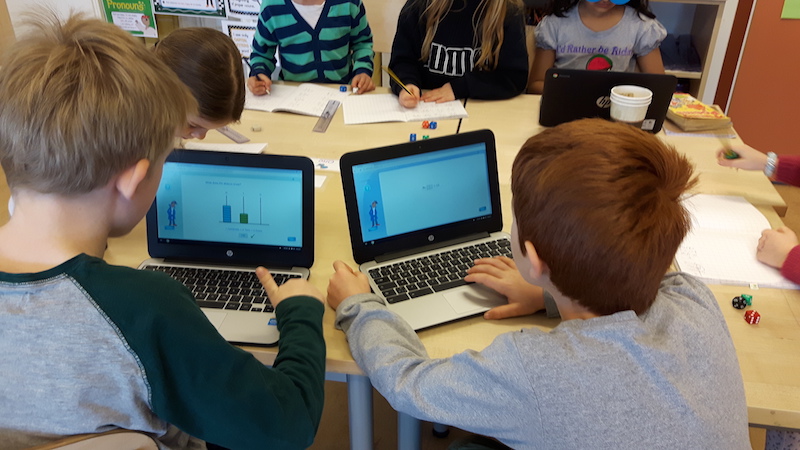Mathletics case study: The International School of Älmhult
Posted on 22nd Sep 2017 in School News, Mathematics
How an IB World School in Sweden is using Mathletics as a core part of teaching new topics...
About the school
At the International School of Almhult, in Sweden all teaching is conducted in English but the school prides itself on its internationalism with pupils from Japan, India and China among the current cohort of 340 pupils aged 3-15.
It is an International Baccalaureate (IB) school so children follow the IB Early Years Programme, followed by the Primary Years Programme (PYP) from the ages of six to eleven and the Middle Years Programme (MYP) from eleven to sixteen. Next year the school will be expanding and offering the IB diploma for young people aged 16-19.
The emphasis is on inquiry-driven and concept-based learning so this is not a school where pupils have a set textbook for each subject. Instead they explore, discuss, ask questions, reason and evaluate.
Maths is often taught in a very practical and concrete way using local resources such as estimating the size of the playground or creating a survey to gather data about their classmates, and producing visual graphs to display their information.
The challenges faced
The school aims to develop young people who are risk-takers. This means guiding pupils to explore new ideas, challenging their ways of thinking and encouraging them to be confident in those decisions.
Teachers need to guide pupils to push themselves and become risk takers in their learning. This is one of the central tenets of the IB Learner Profile. However, if they are to ‘think outside the box’ with their number work they need to be confident in the basics but when Home Base grade 2 teacher Ella Mona Persson arrived at the school 18 months ago she found that the children were quite hesitant when it came to mental maths.
While the class had some high fliers there were also children who were reluctant mathematicians and who were working slowly. She knew she would have to find ways to fire them up and make them work more quickly and purposefully.
The solution
Fortunately, Ella Mona had used the Mathletics engaging online learning resource from 3P Learning at a previous school.
“I would not say I was an expert on Mathletics,” she said, “but I knew it would appeal to my class and improve their motivation and staying power.”
She started off by loading all the maths topics her class had worked on and they used Mathletics to review that semester’s work. This provided a different way of revising and was popular with the class.
Now Ella Mona is using Mathletics as a core part of her teaching for new topics. She prefers to start a topic by providing hands on experience and practical activities so pupils link the mathematics to real life.
Often they will work in pairs or small groups and use manipulatives, things they can touch, pick up, count and handle, to ensure they understand and are comfortable with the area under discussion.
Once they have grasped the concept and can work with the underlying ideas they need good resources for reinforcement and to explore the topic from different angles and this is where Mathletics comes into its own.
It has proved to be very successful. Teachers can see that pupils are faster and are more confident working out the answers to mental maths challenges and the pupils are thrilled with their better grades.
The benefits
Once pupils have completed set tasks Ella Mona lets them stretch themselves still further with Live Mathletics. Often, they compete with classmates but they are also beginning to challenge others in the school and pupils from other schools across the world too.
They are using Mathletics at home too. Now all the pupils in grade 2 are required to do a minimum of 30 minutes a week on Mathletics at home but Ella Mona has found that many are spending much longer on the site. It seems to have something to offer to all pupils: some appreciate the instant feedback and the chance to make mistakes in private, others like the competitive element.
"For me the best thing about Mathletics is that it makes it very easy for teachers to provide a variety of approaches to consolidate learning. I love the fact that pupils repeat, practice and reinforce skills without losing their enthusiasm."
Ella Mona Persson, Home Base Grade 2 Teacher, The International School of Almhult
For more information on 3P Learning please visit www.3plearning.com